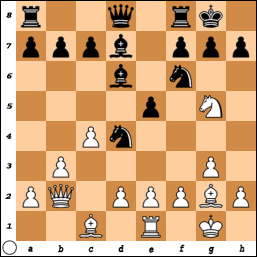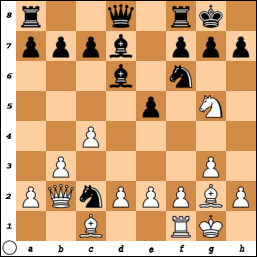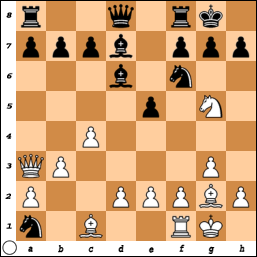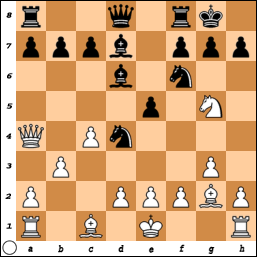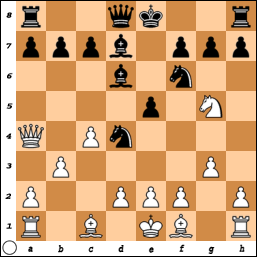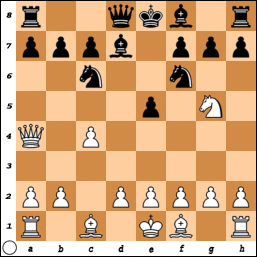Comments
-
Israel killing civilians in Gaza and the West BankJapan only killed ~2800 of us at Pearl Harbor, why did we need to mobilize and kill hundreds of thousands? We should have stopped once we had 2800 Japanese dead. Then we say "war over" and both sides return home in peace. — BitconnectCarlos
You've never been in a real fist fight, have you? Don't take that as an insult, most intelligent people never have. Most people alive are not very intelligent. "If you make me bleed, I make you bleed worse. That's the only way to be even." Unfortunately, you can see how it leads to a feedback loop when two unintelligent people (the only people who get into fights) get into a fight.
In short, humanity needs birth restrictions. No man needs to have a child without permission from a royal court or authority. He should be content in his life and labor, and the miracle of existence. If one cannot appreciate something so simple yet so mindbogglingly complex, he has no reason to reproduce, other than ego and primal lust, both of which are the causes of all human suffering.
Religion was a good start, outlawing fornication. But it needs teeth to really realize its true and intended purpose, that purpose being global peace, the end of all war, and even the least among us living dignified lives of contentedness. -
Friendly Game of Chess
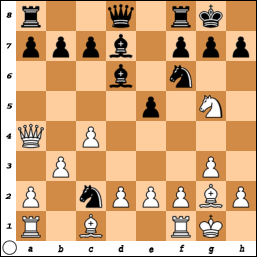
Your move
I also find it silly and against the rules of all sort of monarchistic dynamic that the king piece cannot simply swap with (or otherwise consume) any other piece in an immediately adjacent square. But that's why chess is a game for commoners, after all. Except you. I like you. -
Friendly Game of ChessNot exactly sure we’re talking about the same thing. I’m curious as to why he hasn’t taken your queen yet. — Mikie
I'm assuming he likes his rooks. Or whatever the cross-bearing, diagonal-moving pieces are. Perhaps they're paramount to his preferred strategy or style of playing. They often do end up sneaking up on you quite at the worst possible moments. And with two? Oh man, one best be careful. :wink: -
Was I wrong to suggest there is no "objective" meaning in life on this thread?Do you mean this?: The condition that distinguishes animals and plants from inorganic matter, including the capacity for growth, reproduction, functional activity, and continual change preceding death. — MoK
Think of it like having a favorite color. Everyone has one, and no one's favorite color is any more better or worse than that of another's.
He seems to be describing "life drive", what one wakes up for each morning. Everyone has something they favor over another thing, let that mean "meaning of life".
...and, cue renewing discussion!. Man, I love solving problems. They should pay me to be ambassador, of well, everyone, really. Imagine the peace that would bring. -
Friendly Game of ChessWtf? — Mikie
Bro, that's what I said, too! But to be fair, he did this with me the 3-4 (not sure however many) years ago and apparently, yeah. There's 3 "special moves" in chess. Now, to be fair, if you pull stuff like that on a New York City park bench, it's no one's fault but your own if you end up with the sharp end of a chessboard in your neck. Stuff like that just won't fly in certain neighborhoods.
But, no, it's 100% legal rules of chess. "Castling", "En Passaint" and "pawn promotion."
Sure. Maybe the game would be better off without, but, it's what it is. -
What is an idea's nature?
All excellent questions. Allow me to answer them in order, to the best of my ability.
What is an idea's nature? — Athena
Surely an idea has a minimum of two natures. That which the creator or purveyor of said idea intended, and that which the observer or analyst interprets.
More generally, one must first define "an idea", to get a more direct answer. We often go by consensus, hence the value of a dictionary and why such books remain prevalent. Obviously, by that case, it depends on the idea. :smile:
Of what was a good Christian aware of before Christianity? — Athena
I couldn't answer that. No man could, according to the relevant doctrine of belief. That would be like saying what was your favorite color before you were born? How silly a thing to ponder.
How did this come to be? — Athena
How did what come to be?
Was consciousness the same in all areas, or was it different in different environments? — Athena
Evolution suggests consciousness was evolved. If that's your bedrock understanding of reality, the answer seems to be self-evident.
Why did it take so long for us all to have computers? — Athena
Beats me. Maybe in 1,000 years your grand-kid will be asking people why did it take so long to have personal jetpacks. That's my point. We become unappreciative for things those before us would have given life and limb for. Can't you see that? -
Was I wrong to suggest there is no "objective" meaning in life on this thread?I don't know. This is your thread, not mine. It is up to you to explain what meaning refers to in a couple of sentences, a paragraph, etc. Saying that there are books on this topic does not resolve the problem. — MoK
He's saying (perhaps his understanding of) the idea is so elementary it's found in innumerable places. He feels you are "talking past" his points. You should ask him specifically what it is he finds disagreement with as to your points, since, perhaps he misunderstands them as we can only word and describe things to the best of our ability, which per human development, varies based on age and many other factors. -
What is an idea's nature?Our consciousness today is nothing like it was at other times in history. — Athena
And you know this how? Were you there or something?
It is impossible to think like someone in prehistoric times — Athena
Nobody said "prehistoric", you simply said "other times" in history. That was what that response was toward. You realize, there's people who, right now, yes in 2025, live in times and environments that perfectly match how Earth was a few hundred, a few thousand, and even many more years ago, correct?
The walls of our dwellings may change from bedrock to mud to wood back to rock again. Just as our food may change from time to time. But what makes us human, remains. We delude ourselves with notions of progress, which ultimately mean nothing if we do not elevate ourself along with them. -
What is an idea's nature?replacing the belief that illnesses are caused by the gods. — Athena
I mean, some might be. We don't truly know.
Without math, we would not have computers, televisions, and a much better explanation of evolution than the Biblical story of evolution. — Athena
So basically, without math we'd all be at peace with our thoughts and emotions. Not the best argument, wouldn't you say? :lol:
Our reality today is created by us, not the gods. — Athena
Well that would explain the epidemic of purposelessness the average person feels each day but won't ever dare speak aloud, save for the tired and cliched talking points they themselves likely don't even believe any longer.
I like your posts, this is just more of a tirade against modern society and the pitfalls of such, as well as the "Pandora's Box"-ian ailments it unleashed on an unsuspecting world that was getting along just fine, is all. Pay me no mind. :wink:
Math gives us the consciousness we have today. — Athena
See, now that's... interesting. Do you mean, the material inventions and innovations brought about by math has fundamentally contributed, or perhaps now defines, the average modern day human's consciousness? Sure, a person should know the difference between one sheep and two, so he does not get scammed or otherwise pay more for something he needs than he should. But as far as advanced math, I'd argue the first and earliest philosophers, before mathematicians like Archimedes, or no, not even philosophers, average "uneducated" people found the exact same immersion and level of human experience reading or telling stories, playing primitive games, or acting or watching plays that we do in 2025, if not even a greater and purer form of such, such those today rightfully would and should envy. I'd bet just about anything that's true.
Sure, we can actually fly or travel underwater or to different planets while those before us could only imagine such. But, to use the old saying, "I think, therefore I am." Meaning, just because we can experience something, doesn't mean we appreciate it. In fact, if I know human nature, and I do, it's often the opposite. It numbs us to it. What used to be wonder, becomes monotony. What those before us used to dream of at night, becomes a chore. It's really quite something to ponder, all things considered. -
Friendly Game of Chess
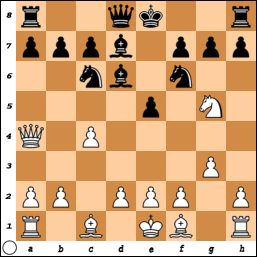
Your move
Sorry for the delay. The inevitable frustrates me to no end. It is a feeling beyond any and all description. Who are you? I know you're not cheating. But you might as well be. -
Hume and legitimate beliefsYour statistical claim — unenlightened
And what claim was that? I'm fairly certain it can be proven no person has ever rolled a dye 1,000 times with the exact same result each time. If you put 6 people, each with a six-sided dye in a room, and instruct them to roll the dye 1,000 times, at least one of those 6 people should have a fair chance of rolling the same number every single one of those 1,000 times. Yet that never happens. That leads people, if not falsely, to believe, anything can happen, just because the same thing happened before. But that was a minor piece of commentary and not a claim or argument. That is as follows, next.
Given every morning of my life (that's more than 1,000) the sun has risen. Habit leads me to expect it to rise tomorrow. Now justify the doubt. Something like "I saw the devourer of suns starting to consume it last evening", perhaps? — unenlightened
Yes, that's reasonable. One with a mind to argue might say such an example is "low hanging fruit". Of course the Sun, a planetary body described by millions of people across thousands of years that has been doing the same thing will probably do the same thing tomorrow. But what does that have to do with non-physical concepts? There's the clear distinction between philosophy and science. Science would be, "if you touch that open flame, your skin will burn or blister." A person who doesn't know what fire is, may, rationally, mind you, doubt that. Until proven. They've never touched fire before, and perhaps they've never been burned or blistered. Without knowledge of the situation, doing such, and resulting in injury, wasn't (relatively) foolish. It was simply dangerous. A result of ignorance. Something we are all born with, and at least in some aspects of life, will die with.
Philosophy, on the other hand, attempts to reach at things a bit non-physical. Such as the mind, emotion, the sense of identity, and purpose. Things that can't be measured by your science. Doubting a metaphysical position is easier to justify than doubting a physical scientific one, for obvious reasons. Which stands to reason, the burden or "minimal quality" of proof, doesn't have to fit every single person's understanding to be valid (unlike science). Basically, comparing one's doubt in philosophy is nothing like doubting whether the Sun will rise tomorrow. At least, not generally let alone automatically. -
Hume and legitimate beliefsCan one justify the doubt that the sun might not rise in the morning? One can say that it might not, but can one really doubt it? — unenlightened
Gambler's fallacy? :chin:
I don't think anyone has ever rolled the same number 1,000 times in a row. But apparently, it's just as likely as rolling the dice 1,000 times and at least one of those times being different than the next. -
Is there a purpose to philosophy?Freud recognized two different types of processes, the preconscious, which contains thoughts that can easily become conscious, and the unconscious proper, which holds repressed material that cannot be directly accessed. — T Clark
Now how on Earth could anyone discover that, other than just guessing in a manner of which seems to offer no room for any argument to the contrary? Of course there are thoughts that become conscious (everything has to come from something), and of course it's possible there's "repressed material" (or perhaps universal, uniform human nature, that may be specific to given cultures or societies and periods of time) that can, by said universality, be "proven" or otherwise elicit an observable response. They call this the "crucial development period", which suggests the first few years of life where the brain is developing will fundamentally have everlasting affect on the brain and person for the rest of their natural lives.
Yes, it can be proven, more so than not, if a person lived in a household of violence and instability, depending on their inclination toward flight or flight, may have a propensity for unwarranted violence. Or, perhaps the opposite, and have an irrational disinclination toward confrontation. Similar to a household where the parent inappropriately touched the child, that child may likely either struggle with boundary issues and is prone to tendencies of a rapist, or, the opposite, and they could fear all physical touch and human intimacy altogether.
The interesting thing is how he makes a decision to completely classify this as something unique from the animal kingdom, where such similarities and parallels can easily be found. And for that I respect. -
Laidback but not stupid philosophy threadsI don't think that's the issue here, but as has been pointed out by Outlander, the OP and some associates want their points to be taken seriously about matters in which they have not read the source material. — boethius
Well, yes and no. People like to discuss philosophy and concepts of philosophy without being "gatekept" by those who they happen to particularly associate as the "ultimate authority" of a concept, despite that concept having existed long before them and would have existed and been developed in thought even if said person were never to have been born.
Of course these are smart people. Of course they have great things to say. But there shouldn't be some "requirement" that one has to read Nietzsche to be able to discuss nihilism. It's a concept. It existed before him, and yes, he made great contributions, but if it weren't him, someone else just would have anyway. That's not an irrational or ignorant belief.
Sure, because of your knowledge with these established figures and their works, you're effectively much more educated than someone who is not. It'd be like a high schooler discussing math with an elementary student. No fun for either party involved. But that's not the point. People can discuss philosophy, provided they have base concepts, such as which Socrates provides, without having read a single page of anything else. Truth is truth. And deserves to be taken seriously, provided it is logical. That should be the only requirement. -
Is there a purpose to philosophy?I don't understand. If someone finds they've been trapped in a fly bottle of their own making, they're free of it. Their metaphorical eyes have been opened (the fly bottle is of course only a metaphor as well). They're to be congratulated, not denigrated. — Ciceronianus
Just because someone without the necessary skills to not only survive but thrive in a different environment or set or circumstances would themself feel (or perhaps truly be) "trapped" in said environment or circumstance, literally has nothing to do with anyone else who would not feel or be trapped in said environment. We assume everyone has our own weaknesses, and that these weaknesses are not personal flaws or faults, but merely a result of reality, or the world in which we all live, when they're simply not.
Just because someone convinces themself, or perhaps an entire society or even the whole world a given something is true and that a given something else is false, doesn't mean what they have convinced themself or others of is actually true or false.
Sure, most people have unhealthy habits or frames of mind they would benefit from immensely "breaking free from." The first step to recovery is realizing you have a problem, so they say. But unfortunately, human nature has a tendency to abuse truths and half-truths with the goal of advancing a personal benefit or agenda that ultimately doesn't benefit anyone but the purveyor. This is, or at least should be, common knowledge at this point.
Essentially, we can be content in our own flybottle, so long as we can condemn others to theirs, or at least our idea of others being restricted, which by de facto means we are free, or at least more free, which is in fact a lie. At least in some scenarios. See crab mentality. -
Is there a purpose to philosophy?Only if you're still buzzing around in the fly bottle. Once out, you may dare to think about, e g., your interaction with the rest of the world as an organism in an environment of which you're a part, and with others. But for those who like being in the bottle they've built, they may continue to indulge themselves. — Ciceronianus
But is it truly unfair to suggest that perhaps just because someone finds what one values in life to be false they're suddenly "a fly trapped in a bottle?" Surely that's dehumanization, an ego run amuck that only finds value in one's life choices and mindset by comparing anything different to something insignificant. Isn't that sad? A cry for help?. Love corrects. Hate condemns. Real talk. :100: -
Laidback but not stupid philosophy threadsThis bloke has 1,7k posts here... suppose he's the little sunshine of this forum. — Ansiktsburk
Oh relax. A little tough love never hurt anyone. You want to be criticized by your peers who wish you to succeed, before those who'd see you fail do so themselves.
Men drink. Men make mistakes. I am no different. You see truth that is relevant to you, you respect it. You see a lie, or that which is not relevant, you avoid it. Surely you're an adult capable of understanding the difference between the two. I suppose that was my fault for assuming.
You made a casual thread and you got a casual response. This is quite how the world works. Is it not?
Just so you don't think it was anything personal, I'll have you know not 3 hours ago I purchased a book written by a new member, one @Pieter R van Wyk off an online marketplace (Amazon) for 17.36 USD. It shall be here Wednesday. While I'm questionable as to whether it will be as great as I contend it may, judging by some very critical comments here it may instead only reveal the mind and mannerisms of a confused soul. Either way, I have a morbid sense of valuation so I will likely enjoy it regardless of what I find. That should tell you all you need to know about me.
So lighten up, while you still can. Or so the song goes. :smile:
In no shortness of irony, you'll find I made a thread expressing similar desire! See, we have more in common than you might think. Small world. no? :sweat: -
Was I wrong to suggest there is no "objective" meaning in life on this thread?It just sounds like they think humans are the exception when recent research into animals has shown that we are not special in much of what we do. — Darkneos
Who is "they?"
And, to @MoK's credit, it's not like any animals are going around fat shaming or judging one another by their economic value or political views. Or are they? :chin: :snicker: -
Was I wrong to suggest there is no "objective" meaning in life on this thread?Could you please give me an example of an animal with the capacity to think? — MoK
Scientists have proven some chimpanzees "think about thinking", not to mention they use tools to solve problems. That, kind of warrants thinking, in a way.
Dogs in a cage who witness other dogs being killed before them feel a sense of dread and panic, thus suggesting they can, at least in some sense, acknowledge time in the past, present, future dynamic like people do.
Why do they do tricks for treats. Is it really just the Pavlov reaction? Sure they might just do it just to do it, no different than the average non-philosopher works a job for the paycheck, not realizing he's keeping society afloat but simply that he gets money that can be exchanged for stuff he can shove into his mouth and not starve.
Why would Socrates (or whoever) go on and on about making such a big deal about this so-called "unxamined life?" Because people don't think in any reasonable capacity beyond the bare minimum to exist.
Also, elephants mourn their dead. You're making this quite easy. Surely you could do a bit of research? -
Hate speech - a rhetorical pickaxeMaybe the issue of whether Charles Manson should or should not have been incarcerated would likewise help out — javra
The problem is he knowingly and specifically went out of the way, to target vulnerable people who in their disheveled state of life and mind would basically believe anything. To his credit, he wasn't your average simpleton, he knew his way around a conversation, shall we say. But it's not like he was out meeting doctorates with degrees and legitimately convincing them of his views. I mean, it's only human to cast a line where you know the fish will bite, no? -
Is there a purpose to philosophy?then is the purpose of philosophy showing the way out, or shaking the bottle? — Banno
Apparently, per one of the mods here, "all language is art." Therefore, all art is language. Perhaps, it can be best likened to painting a picture. Not necessarily a nice picture, but an accurate one. To the best of one's ability, of course. And once presented to another, it's up for that person to compare and contrast that to the one they've painted themselves, be it unrealistic, unwarranted, inaccurate, or any or all of the above. To decide if one's interpretation of the world could not be improved, if not slightly. And we all know, in systems theory, relatively slight and seemingly nominal changes can have quite deep and everlasting effects. :smile: -
Against Causegradations of transversely communicating probabilities across a multitude of drives and physiological mechanisms. — DifferentiatingEgg
Now, there's a tongue twister. Not many times you can honestly say a person has the honor of creating a unique sentence no man has ever uttered before. Not a coherent one, at least. Bravo. :100:
Though is there a slight chance of reducing its complexity just a smidgen? I'll give it a go:
"Things that vary upon other things"
Or does that simply remove any and all value you attributed to such? -
Is there a purpose to philosophy?Yes. But so often the fly is comfortable where it is. — Banno
Aren't you comfortable where you're at? You can't really think there's no knowledge left anywhere that would fundamentally alter your sense of understanding of the world or perhaps even yourself. Can you?
Ignorance is bliss. There's nothing wrong with that. Until there is, I suppose. :confused: -
Was I wrong to suggest there is no "objective" meaning in life on this thread?suggests that humanity exists to achieve the intended outcome of some “higher” power — Michael
To a simple, non-eternal being, perhaps it does suggest that. What of it, though?
You can think that way if you'd like, or perhaps you could think another way and that might be fine, too.
To give you a straight answer, I am trying to re-frame your common sense observation under an alternate light that perhaps we as mortal beings are simply incapable of understanding life and eternity or what have you and so manifest this inability in various forms, particularly stories, faiths, religions, and the like.
Or at the very least, that we have yet to reach such understanding as a species. Of course, the alternate "being incapable" is quite possible as well.
There does seem to be a clear theistic and non-theistic divide as far as this question is not only answered but processed. Which makes sense. Did we just evolve because after billions of years that's just what happened to have happened? Sure, that's plausible, I suppose. Not much evidence to the contrary. In my opinion, that would, unfortunately, seem to glorify war, violence, theft and everything we generally wish to avoid happening to us and those we care about as not just something people do but must do. That doesn't sit right with me, so I choose to believe something else.
There are many alternative possibilities as well. Perhaps we were made by a being that no longer exists. Perhaps we succeeded in our purpose, whatever it may have been, and now get to live unhindered by our past duties. It gets a bit hard to keep track of when you step over the logical edge like that and like most religions require, of course so generally isn't very productive in traditional philosophy.
Would you agree that if it were an absolute fact humanity simply evolved organically over millions of years, and the modern human is the most advanced and intelligent being in this and any universe, human life has in fact no real purpose? That is to say, no other purpose than that of a mosquito or a common cold germ? (That "purpose" being simply to propagate DNA) -
Was I wrong to suggest there is no "objective" meaning in life on this thread?There must be a cause but there might not be a purpose. — Michael
There's always a purpose. Be it simple, as a mental invalid wishing to express whatever their decrepit brain desires, or not. I feel you mean, there's not always a "goal" or aspect and dynamic of "intelligent reasoning" that can distinguish between past (knowledge), present (circumstance), and outcome (vision). Perhaps that's what you mean. :smile: -
What is a system?
Now look what you've gone and done. You made a poor old man "concede". How noble. Surely all great men wake up each morning with such a desire in their heart.
You're a slick talker. I can admit I've been fooled by your veneer here more than once. Nevermore. But I'll tell you now. If I wasn't retired. The lesson me and my sword would teach the likes of you, would be legendary. Nothing short of cataclysmic. -
Laidback but not stupid philosophy threadsThe Duke's influence on Kant doesn’t have much exposure, assuming there was any — Mww
"Whenever any man of sound mind and reason living in a world of lies and deception comes across a 'gatekeeper', one immediately barges through, preferably running them over, eager to see what secrets and treasures lie beyond the veil of ignorance the weak and transient attempt to keep from the eyes and ears of average men."
Old quote. That I may have just made up right now. Take it as you will. -
What is a system?No problem. I see you have also wasted some time on Youtube with some philosophical ramblings. — Pieter R van Wyk
Hey now, let's be fair. What the heck else is anyone here doing? He's the only one I've seen so far who actually puts his face and voice behind his belief aside from mindless typing to strangers in states of various dishevelment (I assume that's how everyone else posts, but perhaps that's just me).
And what a shame that is! Why doesn't the site owner post videos. Or the mods, especially the ones who have great things to say. It's a tragedy. That's what it is, a tragedy. That most of us are either so shy or so non-dedicated we refuse to put ourselves out there.
So I do praise @i like sushi for doing that much. At the very least. And you too, what with your book. However, and it may not be your fault as certain people are not good under pressure and not able to "instantly respond" and require a quiet, relaxed environment and steady pace to do so, especially with age... I mean, why not post a few videos promoting your book and what you have to say? It's not going to kill you! Will it? :chin: -
Is there a purpose to philosophy?That's generally the main issue I hear people talk about with philosophy, it doesn't really enhance our lives. — Darkneos
It's certainly not for everyone. The average person engages in something because they seek immediate benefit. Or as they'll put it "for it to be useful eventually." It's almost like an advanced form of language. People use it to "sound smart" and "impress others" and of course to better cope with and appreciate the ups and downs of this hectic thing we call life. Unfortunately, it doesn't "work" on people smarter than yourself.
Besides, the average person just scrolls through TikTok or any social media feed and all the "helpful" quotes that resonate with the average person, or to be fair, stood the test of time organically, are all right there and all you have to do is repeat it around others to sound smart. Sort of self defeating, but not entirely I suppose, seeing as it does proliferate wisdom to the common man, which arguably, was the purpose. I imagine Socrates or any one of these wise people just got annoyed at the average person and wanted to "fix" them, thus making the world a better, or at least less annoying place. Just my theory. -
Laidback but not stupid philosophy threadsTry Reddit, OP.
Laidback = "Not stupid" = Elementary level.
It's why you're not a rocket scientist or nuclear engineer. You're barking up trees whose fruits would (rightfully) kill you. Stop trying to grandstand. Some people are great. You're not. No amount of force you can apply will ever change this fact. Just turn on HBO or Netflix and live your life. You'll love it. I promise. -
Beautiful ThingsYou think that's because I hate blind people and that you're going to expose that hatred regardless of my efforts to conceal it. — Hanover
To the contrary, I'd bet life and limb you don't have a hateful bone in your body. Not one that was placed there by your own will or volition, at least.
I merely sought an explanation so as to alleviate my apparent ignorance. I have a problem and look to you for a solution. I didn't mean to if such endeavors are inappropriate in your eyes. Surely you can forgive me.
The reason I said that the beauty of a sunset and a legal ruling are different is because they are. — Hanover
Well, explain how. Once more. Not everyone is as quick to logic and fact as you are. Surely this is the beauty of life, no?
Clearly multiple people here think (or at least remain uniformed) otherwise. Why not enlighten us instead of pejorati. It's clearly within your capacity to explain. I've seen it. And how.
Of course things are different. No different than saying every person's life is unique. I simply wished to ask how a non-visual form of (perceived) beauty is irreconcilably different from a visual experience of such. Perhaps this is self-evident. But it's not to me. It's not to many. I merely assumed someone or your wit and knowledge would be able to explain such. We look toward those whom we respect or otherwise find have qualities that are respectable to gain greater insight into the world around us. That's all. Nothing more, nothing less. I'm sorry if this upsets you, it certainly wasn't meant as such. I didn't wake up this morning, or any morning for that matter, wishing to be ignorant of things, facts or understanding you take for granted as second nature. Surely you can believe that. :confused:
Perhaps I'm merely barking up the wrong tree, so to speak. Out of my league. Is that such a crime? Surely, you yourself have been in such a position, at some point. I just thought you'd have a bit more to say is all. My fault?
At least one other person recently participating in this discussion aside from myself believes beautifully written words themself can be either equal or equivalent to a visual scene of beauty. If this is false, and the other person has received adequate proof or explanation from your words as such, that's all there is to it.
Let's start over. If one was non-sighted (I.E. blind), that person would never know the beauty of a sunset, nor that it is different from an otherwise beautiful arrangement of words or rulings. This to me, leads it to believe that blind people can never experience true beauty. Is this true or false? The idea of a "difference" is obvious, no different than one drink being flavored citrus and another being flavored non-citrus, but my question is, regardless of whether one is able to detect such flavoring or not, is inability of such truly defining of the overall experience? -
Donald Trump (All Trump Conversations Here)
Not to critique, but if one was so adamant and such facts were so self-evident, one could easily have made each bullet point a hyperlink a person just has to click instead of researching themself. The fact I don't even want to, rather I don't have the time to check facts, neither does the average person, I mean, it kind of explains why he gained popularity. People are not intelligent. Not in a free society. Thinking is hard. All I need to do is learn how to dress myself in the morning and do a basic function, any function really, it can be as simple as pushing buttons or pouring coffee, and I get to live a life that a monarch 1,000 years ago could only dream of. I do that, I get to make a living. Anything else is superfluous. That's what the average person thinks. That's how they live. That's who they are. -
Reading group: Negative Dialectics by Theodor AdornoYou could start with just understanding Hegelian dialectics. — frank
Or, perhaps, you could start with explaining what his perceived misinterpretations in your mind are. You surely cannot believe every person capable of understanding what you do, and beyond (heh, if such a concept is possible..) believes the exact same thing you do. Interpretation is the lifeblood of philosophy, after all.
I wasn't going to post this, seeing as I'm fairly unacquainted with "established" philosophy and really enjoy, perhaps even prefer, just being an interlocutor, or observer, but in light of @Metaphysician Undercover's latest post, I feel it may be slightly more relevant than I first had envisioned. -
Thoughts on EpistemologyWell, but there's the rub -- we do. — J
Mm, not so sure on this.
https://en.wikipedia.org/wiki/Mirage
To go toward the mirage is Justified True Belief (if one is not familiar with modern day science). And who knows, it might lead to water. Eventually.
It certainly is better than nothing. And sure, to your credit, only a fool would not follow such. But... not all who survive to live good lives are wise men, and not all who perish foolish deaths were fools. Something to keep in mind. :smile:
Outlander

Start FollowingSend a Message
- Other sites we like
- Social media
- Terms of Service
- Sign In
- Created with PlushForums
- © 2026 The Philosophy Forum
